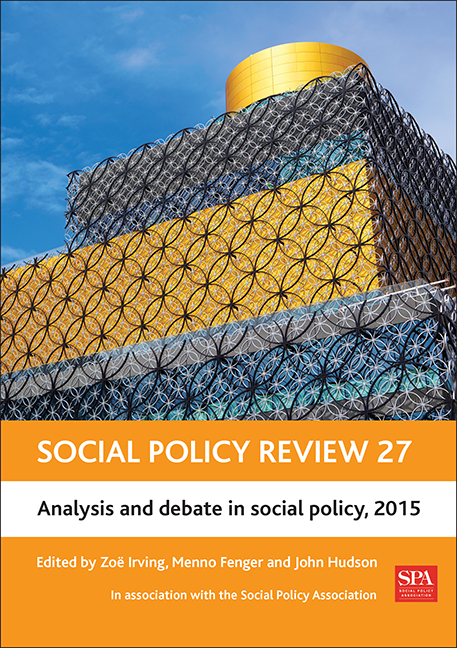Book contents
eleven - The welfare modelling business in the East Asian welfare state debate
Published online by Cambridge University Press: 08 March 2022
Summary
Introduction
Since Esping-Andersen's (1990) The three worlds of welfare capitalism was published in 1990, many aspects of his work have been debated, criticised and reinvigorated (see, for example, Abrahamson, 1999; Arts and Gelissen, 2002; Powell and Barrientos, 2011). Of the many great welfare state scholars, he is undoubtedly one of the most widely cited and talked about. Particularly pertinent is his argument that welfare states cluster around certain distinct regime types. This practice of typologising, despite being criticised as ‘the lowest form of intellectual endeavour’ (Baldwin, 1996, p 26), has had an enduring influence in academic circles. While Esping-Andersen was not the first person to develop a welfare regime typology, his has been so influential that almost any discussion regarding the issue of welfare state modelling cannot be carried out without referring to his work as a starting point.
This chapter discusses the influence of Esping-Andersen's work in comparative analyses of the welfare state in East Asia. There are a number of good reasons for approaching the question of how his work has influenced debates from this angle. Arguably, the most obvious is the simple fact that East Asia is now a fully industrialised region and its countries rich enough to be part of the world(s) of welfare capitalism. This was not so at the moment Esping-Andersen undertook his study using data from 1980. Any retrospective on the contribution of The three worlds of welfare capitalism can gain much from looking at new members of the ‘welfare capitalism club’ in order to test, extend and, indeed, challenge the welfare models debate. We might add, too, the fact that rapid economic growth in the East Asian region means it has been at the heart of a growing interdisciplinary interface between comparative social policy and international development, facilitating exchange of theory between the two disciplines. Finally, and most importantly perhaps, these factors mean East Asia might provide a testing ground for new theoretical developments in the welfare modelling debate.
This chapter makes two distinct arguments concerning the influence of The three worlds of welfare capitalism on debates about social policy in East Asia. First, since publication of the book there has been an enormous increase of social scientific interest beyond the once dominant intellectual terrain of economic development.
- Type
- Chapter
- Information
- Social Policy Review 27 , pp. 225 - 246Publisher: Bristol University PressPrint publication year: 2015



